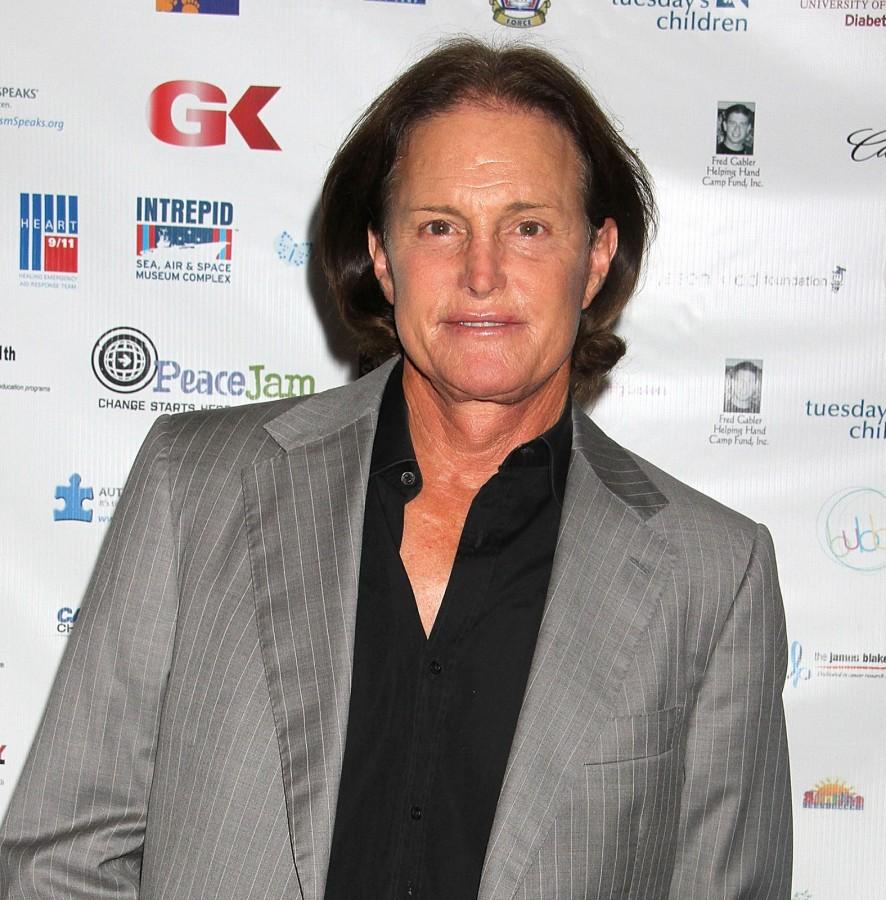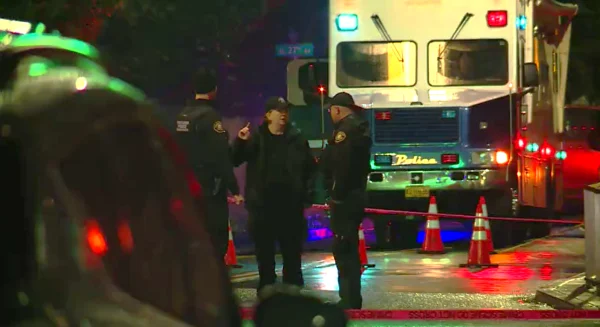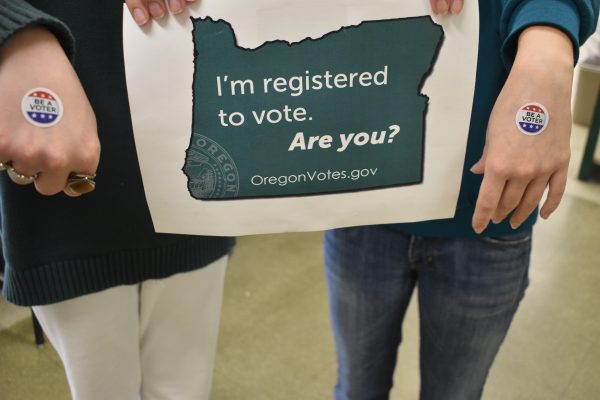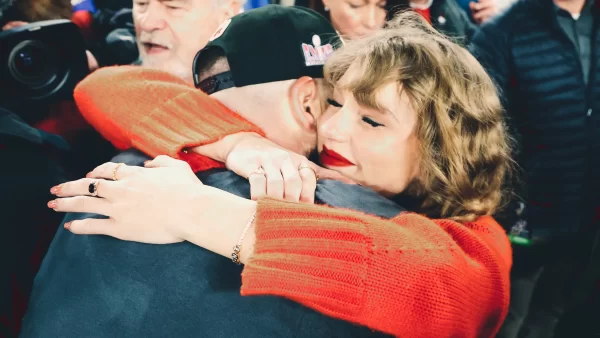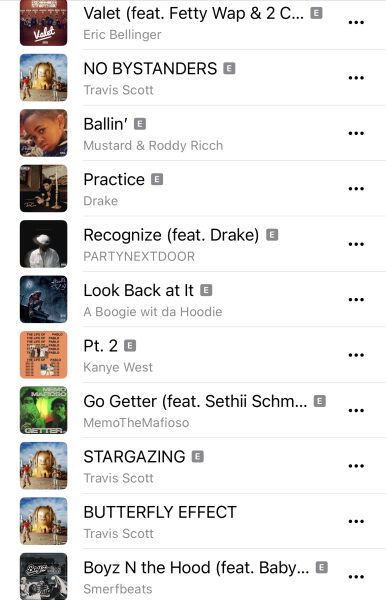Have an open heart: America’s transgender moment
“You know inside what you are,” said transgender model Geena Recero, “and that question burns in your heart.” In 1776, our Founding Fathers promised that all men would be created equal. They ascertained that every United States citizen would be endowed with certain inalienable rights that granted every American the freedom to pursue happiness. Yet, even though these morals bear the weight of our country and are something that we vow to live by, we still continue to discriminate against people who are different than us.
Since the creation of the term “transgender,” said people have been persecuted and misunderstood. Up until 2012, the American Psychiatric Association still classified those who identified as transgender as having a mental “disorder.” It wasn’t until January of this year that a president even dared to utter that word in a state of the union address, despite its immense and growing prevalence in our culture. Transgender people in the US still continue to face discrimination every day. Many are denied their basic rights, starting anywhere from peeing in bathrooms, to being persecuted by their employers. Fifty-nine percent of Americans believe that transgender people should use the bathroom of their birth gender, according to a poll conducted in 2014. Our country seems to be infected by a plague of affliction.
A 2011 study found that 700,000 American adults, or three percent of the population, identified as transgender. According to ABC news, 87 percent of Americans claim they know someone who is gay, while less than 10 percent said they know someone who is transgender. “I believe that the more people who know transgender people, the more they will understand, accept, and support us,” said Hayden Mora, deputy chief of staff at the Human Rights campaign. Mora is a transgender man himself. “That happens only if they acknowledge our humanity and not treat us like tabloid fodder.”
Even though discrimination is tragically prominent in our society, there is something to be said about this generation’s open-mindedness and acceptance for others. Because of this, 2015 could very well be the turning point for how transgenderism is treated in our culture. In fact, TIME magazine even went as far as calling this year “America’s next civil rights frontier.”
“We are definitely in a critical moment for the trans movement,” said Kris Hayami, executive director of the Transgender Law Center. “Over the last year, we have seen an increase in visibility that was unimaginable just a few years ago.” Still, Hayami added, “It is clear that visibility is not enough.”
Transgender movement advocates and speakers alike agree that though light is being brought to the topic, more is needed than just the attention. “Transgender people are subject to profound discrimination and violence,” said Riki Wilchins, a former transgender activist. “Greater acceptance is really needed, and long overdue.”
Perhaps a real-life story gone public could bring more understanding and acceptance to the issue. Bruce Jenner, former Olympian and father of 10, could be the man—or woman—for the job. “What I’m doing [telling my story of transgenderism] is going to do some good and we’re going to change the world,” said Jenner. “We’re going to make a difference.”
In a recent 20/20 interview with Diane Sawyer, which racked up over 17 million views and broke a world record for it, Jenner told his life story of being confused with his gender identity. “My brain is much more female than it is male,” said Jenner. “It’s hard for people to understand that.” He expressed feeling as if he was born into the wrong gender from a time before he even knew the term “transgender.” As a young child, he felt compelled to try on his mother’s dresses, and at times, he indulged that urge. Jenner claimed that training for the Olympics allowed him to ignore who he really was and embrace his masculine side, though he admitted that suppressing his inner self was unhealthy for him and may have caused damage.
In the interview, Jenner went on to talk about how lucky people are to wake up and get to be themselves. As someone who had repressed who he was for so long, Jenner felt a need to come out to the public about the issue. “For all [intents and] purposes,” said Jenner, “I am a woman.”
After the numerous stunts that the Kardashian/Jenner family has pulled, there’s an obvious cause for speculation around the genuineness of Jenner’s confession. Whether you believe him or not, it can’t be ignored that his words ring true. The public spotlight shed on the issue cannot be a bad thing for the transgender community. In fact, Wilchins believes that all the media attention could have a positive impact on the transgender movement. “We are at a social inflection point on transgender issues,” said Wilchins. “Civil rights for minorities come in fits and starts. We’re on an upswing now.”
Bottom line, we’re all just humans trying to coexist. Persecution of one another doesn’t make that struggle any easier. We have to wake up and realize that it’s possible for the way you feel on the inside to be different than the way you look on the outside, and having to repress who you are based on how society might treat you if you showed your true face is beyond inhumane. Our world needs to be accepting of everyone, regardless of race, sex, religion, and sexuality alike. After all, we all deserve the right to be loved for who we are and to feel comfortable and accepted in our own skin. It’s time that we learned that.
The Declaration of Independence says that all men are created equal. Actually, they’re not; but they should be. We know the difference between right and wrong, and we know that discrimination is unacceptable. We have the power to control how we treat one another and to condemn the persecution of our brothers and sisters. It’s time that we put an end to this bigotry and embrace each person for who he or she is. As Bruce Jenner says, “Have an open mind and an open heart.”

Position within Newspaper: Editor-in-Chief, Content Editor, Copy Editor
Graduation year: 2017
Favorite thing to do: I am a passionate writer and...



